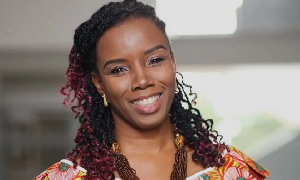 Professor Elsie Effah Kauffman, Dean of the School of Engineering Sciences, University of Ghana
Professor Elsie Effah Kauffman, Dean of the School of Engineering Sciences, University of Ghana
Professor Elsie Effah Kauffman, Dean of the School of Engineering Sciences, University of Ghana, has challenged Africans to participate in the creation of digital technologies to address their own challenges.
She observed that the engineering of digital technologies was informed by the developmental and social challenges of the creators and might not address the African problem.
“Other people have developed the apps, other people have data on there, other people are coming up with creative ways of communicating with the world, we only want to consume.
“We should get to the point where we are creating and contributing to the developments happening in the world rather than just being consumers of what we receive,” she said.
Speaking in an interview with the Ghana News Agency (GNA) in Cape Coast, Prof Kauffman iterated the critical need to be technologically savvy but stressed that Africans and Ghanaians in particular should not just be end- receivers of technology.
Specifically on Artificial Intelligence (AI), the biomedical engineer, noted that the technology was only powerful because of the data it had been fed with and questioned the country’s contribution to the data.
She said the people who produced the AI systems had their own intrinsic ways of looking at the world and since Africans did not make much contributions, they were only forced to imbibe.
“We contribute so little to that data. When you are using an AI system and it is giving you information, does it understand you as a Ghanaian and does it understand us as people with unique beliefs?” she queried.
“If you want to call an ambulance and you search on the AI, it will tell you the number that is well-known because those are the people that contribute to the training of that AI,” she added.
There was therefore the need to have local people who understood the African and Ghanaian systems to develop those technologies in that context, she added.